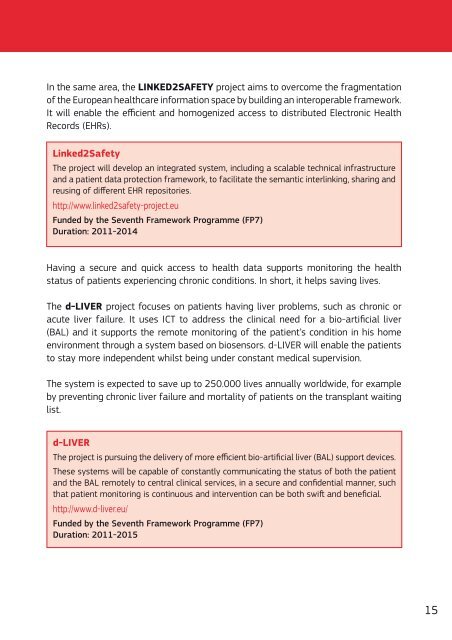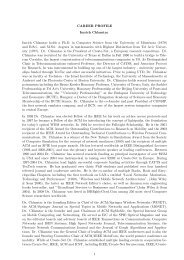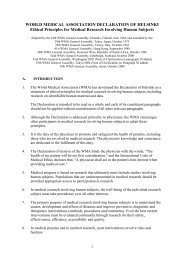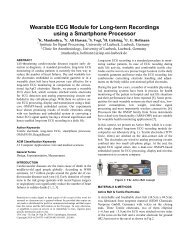ICT for Societal Challenges - European Commission - Europa
ICT for Societal Challenges - European Commission - Europa
ICT for Societal Challenges - European Commission - Europa
Create successful ePaper yourself
Turn your PDF publications into a flip-book with our unique Google optimized e-Paper software.
In the same area, the LINKED2SAFETY project aims to overcome the fragmentation<br />
of the <strong>European</strong> healthcare in<strong>for</strong>mation space by building an interoperable framework.<br />
It will enable the efficient and homogenized access to distributed Electronic Health<br />
Records (EHRs).<br />
Linked2Safety<br />
The project will develop an integrated system, including a scalable technical infrastructure<br />
and a patient data protection framework, to facilitate the semantic interlinking, sharing and<br />
reusing of different EHR repositories.<br />
http://www.linked2safety-project.eu<br />
Funded by the Seventh Framework Programme (FP7)<br />
Duration: 2011-2014<br />
Having a secure and quick access to health data supports monitoring the health<br />
status of patients experiencing chronic conditions. In short, it helps saving lives.<br />
The d-LIVER project focuses on patients having liver problems, such as chronic or<br />
acute liver failure. It uses <strong>ICT</strong> to address the clinical need <strong>for</strong> a bio-artificial liver<br />
(BAL) and it supports the remote monitoring of the patient’s condition in his home<br />
environment through a system based on biosensors. d-LIVER will enable the patients<br />
to stay more independent whilst being under constant medical supervision.<br />
The system is expected to save up to 250.000 lives annually worldwide, <strong>for</strong> example<br />
by preventing chronic liver failure and mortality of patients on the transplant waiting<br />
list.<br />
d-LIVER<br />
The project is pursuing the delivery of more efficient bio-artificial liver (BAL) support devices.<br />
These systems will be capable of constantly communicating the status of both the patient<br />
and the BAL remotely to central clinical services, in a secure and confidential manner, such<br />
that patient monitoring is continuous and intervention can be both swift and beneficial.<br />
http://www.d-liver.eu/<br />
Funded by the Seventh Framework Programme (FP7)<br />
Duration: 2011-2015<br />
15






